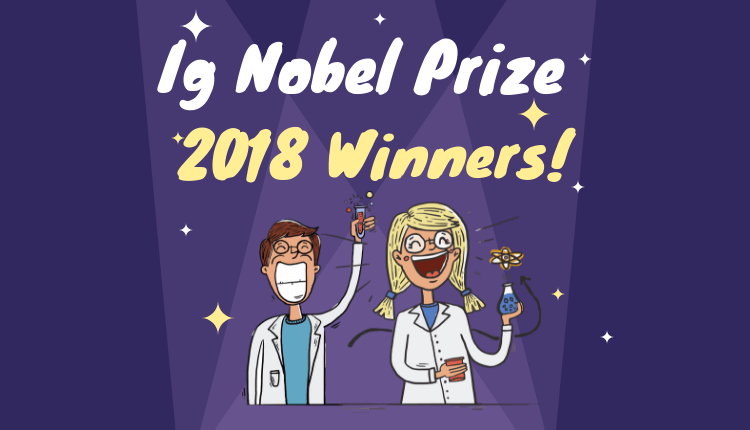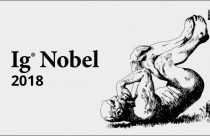Ig Nobel Prize Winners 2018

In our previous post, we shared a brief background about the Ig Nobel Prize. This award ceremony is basically a parody to the actual Nobel Prize Awards. In fact, the tagline for the Ig Nobel Prize goes as “Research that makes people laugh and then think.” This year the Ig Nobel Prize was awarded on September 13th at the 28th First Annual Ig Nobel Prize ceremony, which took place at the Sanders Theatre, Harvard University. The theme for this year’s Awards Ceremony was “The Heart.” Apart from just the theme, the Ig Nobel Prize Ceremony included quite a few improbable things:
- Announcement of the 2018 winners: The winners actually receive their prizes in person along with a handshake from geniune Nobel laureates.
- Pre-Ceremony Concert
- 24/7 Lectures: A few of the world’s top thinkers firstly explain the technical details of their work in 24 seconds and then share a clear and simplified summary to the general public of the work in 7 words.
- Premiere of the Mini-Opera
- Ceremonial bows from past Ig Nobel Prize winners
2018 Winners
- MEDICINE: Marc Mitchell and David Wartinger from USA were declared the winners for their ground-breaking study of using roller coaster rides to try to hasten the passage of kidney stones.
- ANTHROPOLOGY: Tomas Persson, Gabriela-Alina Sauciuc, and Elainie Madsen, for collecting evidence, in a zoo, that chimpanzees imitate humans about as often, and as well, as humans imitate chimpanzees.
- BIOLOGY: Paul Becher, Sebastien Lebreton, Erika Wallin, Erik Hedenstrom, Felipe Borrero-Echeverry, Marie Bengtsson, Volker Jorger, and Peter Witzgall, for showing that wine experts can easily and reliably identify, through smell, the presence of a single fly in a glass of wine.
- CHEMISTRY: Paula Romão, Adília Alarcão and the late César Viana, for painstakingly measuring the degree to which human saliva is a good cleaning agent for dirty surfaces.
- MEDICAL EDUCATION: Akira Horiuchi from Japan, for the medical report “Colonoscopy in the Sitting Position: Lessons Learned From Self-Colonoscopy.”
- LITERATURE: Thea Blackler, Rafael Gomez, Vesna Popovic, and M. Helen Thompson, for documenting that most people who use complicated products do not read the instruction manual.
- NUTRITION: James Cole, for calculating that the caloric intake from a human-cannibalism diet is significantly lower than the caloric intake from most other traditional meat diets.
- PEACE: Francisco Alonso, Cristina Esteban, Andrea Serge, Maria-Luisa Ballestar, Jaime Sanmartín, Constanza Calatayud, and Beatriz Alamar, for measuring the frequency, motivation, and effects of shouting and cursing while driving an automobile.
- REPRODUCTIVE MEDICINE: John Barry, Bruce Blank, and Michel Boileau, for using postage stamps to test whether the male sexual organ is functioning properly—as described in their study “Nocturnal Penile Tumescence Monitoring With Stamps.”
- ECONOMICS: Lindie Hanyu Liang, Douglas Brown, Huiwen Lian, Samuel Hanig, D. Lance Ferris, and Lisa Keeping, for investigating whether it is effective for employees to use Voodoo dolls to retaliate against abusive bosses.
What do you think of this year’s Ig Nobel Prize Winners? Which research study do you think was the most absurd in the list? Share your thoughts with us in the comments below!





